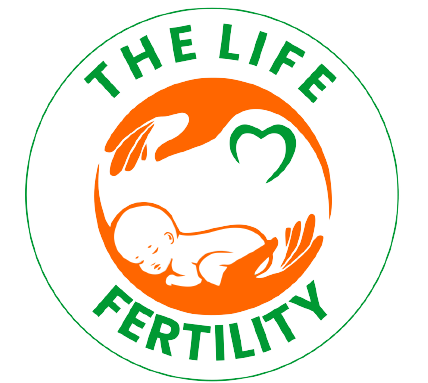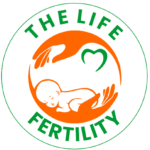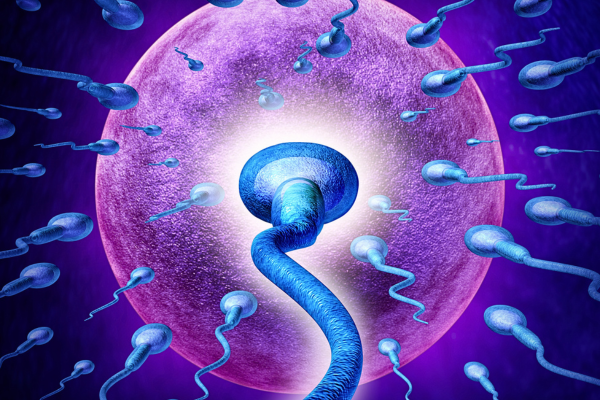Introduction
Boosting your fertility isn’t just about timing; it’s about optimizing your overall health and well-being. Struggling with fertility can be a challenging and emotional journey, but you’re not alone. Whether you’re just starting to think about growing your family or have been trying for some time, understanding how to boost your fertility is essential.
From lifestyle changes to diet and medical treatments, there are numerous ways to increase your chances of conceiving. We’ll break down these strategies step-by-step, providing you with practical tips and expert insights to help you take control of your fertility journey. https://www.healthline.com/nutrition/16-fertility-tips-to-get-pregnant
Understanding Fertility Challenges
Fertility challenges can arise for a variety of reasons, often leaving couples feeling overwhelmed and uncertain about their path to parenthood. These challenges can stem from a range of factors, including age, hormonal imbalances, lifestyle choices, and underlying medical conditions. For many, understanding these obstacles is the first step toward finding effective solutions. By identifying the root causes of infertility, you can take proactive steps to boost your fertility and increase your chances of conception.
It’s critical to understand that problems with reproduction are widespread and impact both men and women. While some couples may conceive easily, others may face difficulties due to issues like polycystic ovary syndrome (PCOS), endometriosis, or low sperm count. Regardless of the cause, taking the time to understand your unique situation can empower you to make informed decisions about your reproductive health.
Importance of Boosting Your Fertility
Boosting your fertility is about more than just increasing your chances of getting pregnant; it’s about optimizing your overall health and well-being. Fertility is closely linked to various aspects of your lifestyle, including diet, exercise, and stress management.
By focusing on these areas, you can create an environment that is conducive to conception. Whether through natural remedies, lifestyle adjustments, or medical interventions, taking steps to boost your fertility can significantly impact your ability to conceive.
Moreover, boosting your fertility is not just about the here and now; it’s also about preparing your body for a healthy pregnancy and a healthy baby. When you prioritize your reproductive health, you’re not only enhancing your fertility but also setting the stage for a smoother pregnancy and a positive birth experience. Understanding the importance of boosting your fertility can help you take control of your journey to parenthood, making it a more fulfilling and successful endeavor.
Table of Contents
Introduction
Understanding Fertility Challenges
Importance of Boosting Your Fertility
6 Tips To Boost Your Fertility
Understanding Fertility
How Fertility Works
Common Reasons for Male and Female Infertility
Lifestyle Changes to Boost Your Fertility
Diet and Nutrition for Fertility
The Significance of Physical Activity and Exercise
Managing Stress and Its Impact on Fertility
Avoiding Harmful Substances: Alcohol, Smoking, and Caffeine
Natural Remedies and Supplements to Boost Your Fertility
Herbal Supplements to Boost Fertility
Minerals and Vitamins Needed for Healthy Reproduction
Acupuncture and Other Alternative Therapies
Medical Treatments and Interventions to Boost Your Fertility
Fertility Drugs: Everything You Should Know
IVF, IUI, and Other Assisted Reproductive Technologies (ART)
When to See a Fertility Specialist
Tracking and Timing for Optimal Conception
Understanding Your Menstrual Cycle
Best Time to Conceive: Ovulation Tracking and Timing
Emotional and Psychological Support
Coping with the Emotional Challenges of Infertility
Seeking Support: Counseling and Support Groups
Conclusion
6 Tips To Boost Your Fertility
Understanding Fertility
Fertility is a complex process that involves the harmonious functioning of various biological systems in both men and women. To boost your fertility effectively, it’s essential to have a clear understanding of how these systems work together to enable conception. By gaining insight into the fundamentals of fertility, you can better appreciate the steps needed to enhance your chances of becoming pregnant.
How Fertility Works
Fertility in women revolves around the menstrual cycle, which typically lasts around 28 days. The key event in this cycle is ovulation, where an egg is released from the ovaries and travels down the fallopian tube, ready to be fertilized by sperm. For conception to occur, sperm must meet the egg during this window of ovulation, which usually happens around the middle of the cycle. In men, fertility depends on the production of healthy sperm and their ability to reach and fertilize the egg.
A balance of hormones, proper function of the reproductive organs, and overall health all contribute to successful conception. Understanding how fertility works is the foundation of any strategy to boost your fertility, as it highlights the critical factors that need to be optimized.
Common Reasons for Male and Female Infertility
Several causes of infertility impact both men and women. In women, common causes include hormonal imbalances, such as those seen in polycystic ovary syndrome (PCOS), blocked fallopian tubes, endometriosis, and age-related decline in egg quality. In men, infertility often stems from issues like low sperm count, poor sperm motility, or structural problems within the reproductive system.
Lifestyle factors, including diet, stress, and exposure to environmental toxins, can also impact fertility in both sexes. By identifying and addressing these common causes, you can take proactive steps to boost your fertility and improve your chances of conceiving.
Lifestyle Changes to Boost Your Fertility
Making positive lifestyle changes is one of the most effective ways to boost your fertility. Your daily habits, diet, and overall well-being play a significant role in your reproductive health. By focusing on improving these aspects, you can create a more fertile environment for conception. Below, we explore key lifestyle changes that can enhance your fertility and increase your chances of becoming pregnant.
Diet and Nutrition for Fertility
Your fertility may be significantly impacted by the foods you eat. For both men and women trying to increase their fertility, a well-balanced diet full of vital nutrients is key.
Nutrients like folic acid, zinc, and antioxidants play a vital role in supporting reproductive health. Men’s and women’s sperm health can be enhanced by eating a diet rich in fruits, vegetables, complete grains, and lean proteins. Additionally, maintaining a healthy weight through proper nutrition can regulate hormonal balance, which is essential for ovulation and overall fertility.
The Significance of Physical Activity and Exercise
Regular physical activity is another important factor in boosting your fertility. Maintaining a healthy weight is essential for reproductive health and can be achieved with exercise. Being either overweight or underweight can disrupt hormone levels and interfere with ovulation in women and sperm production in men.
Engaging in moderate exercise, such as walking, swimming, or yoga, can improve circulation, reduce stress, and enhance overall well-being, all of which contribute to a more fertile body. However, it’s important to avoid excessive exercise, as it can have the opposite effect and negatively impact fertility.
Managing Stress and Its Impact on Fertility
Stress is a prevalent, yet frequently disregarded, component that can have a major impact on fertility. Stress is a prevalent, yet frequently disregarded, component that can have a major impact on fertility. Chronic stress can lead to hormonal imbalances that interfere with ovulation in women and sperm production in men.
Finding effective ways to manage stress is essential for anyone looking to boost their fertility. Deep breathing exercises, mindfulness, and meditation are some of the techniques that might help lower stress and improve the conditions that are favorable for conception. Additionally, prioritizing sleep and relaxation can further support your efforts to enhance fertility.
Avoiding Harmful Substances: Alcohol, Smoking, and Caffeine
Certain substances can have a detrimental effect on your fertility and should be avoided if you’re trying to conceive. Alcohol, smoking, and excessive caffeine intake are known to impair reproductive health in both men and women.
Smoking can damage eggs and sperm, while alcohol consumption can disrupt hormone levels and reduce fertility. High levels of caffeine have also been linked to lower chances of conception. To boost your fertility, it’s advisable to limit or eliminate these substances from your lifestyle, thereby creating a healthier environment for successful conception.
Natural Remedies and Supplements to Boost Your Fertility
In addition to lifestyle changes, natural remedies, and supplements can play a significant role in boosting your fertility. Many couples turn to these alternatives to enhance their reproductive health and increase their chances of conception. Below, we explore some of the most effective natural remedies and supplements that can help you on your fertility journey.
Herbal Supplements to Boost Fertility
Herbal supplements have been used for centuries to support reproductive health and boost fertility. Some of the most popular herbs include Vitex (chaste tree berry), which helps balance hormones and regulate the menstrual cycle, and Maca root, known for improving sperm quality and libido in men.
Moreover, evening primrose oil and red clover are frequently used to improve cervical mucous, which facilitates sperm motility and egg accessibility. While herbal supplements can be beneficial, it’s important to consult with a healthcare provider before starting any new regimen to ensure safety and effectiveness.
Minerals and Vitamins Needed for Healthy Reproduction
Certain vitamins and minerals are essential for healthy reproduction and can significantly boost your fertility. Folic acid is one of the most important nutrients for women trying to conceive, as it helps prevent neural tube defects and supports overall reproductive health. Zinc plays a crucial role in sperm production and egg quality, while vitamin D is linked to improved fertility in both men and women.
Other key nutrients include Coenzyme Q10, which supports mitochondrial function in eggs and sperm, and Omega-3 fatty acids, which reduce inflammation and promote hormonal balance. Incorporating these vitamins and minerals into your diet, either through food or supplements, can enhance your fertility and improve your chances of conception.
Acupuncture and Other Alternative Therapies
Alternative therapies like acupuncture have gained popularity as natural ways to boost fertility. Thin needles are inserted into predetermined bodily locations during acupuncture treatments to enhance energy flow and regulate hormones. Studies have shown that acupuncture can increase blood flow to the reproductive organs, reduce stress, and improve the success rates of fertility treatments like IVF.
Other alternative therapies, such as yoga, meditation, and massage, can also support fertility by promoting relaxation, reducing stress, and improving overall well-being. These therapies offer a holistic approach to boosting your fertility and complementing other treatments you may be undergoing.
Medical Treatments and Interventions to Boost Your Fertility
When natural methods and lifestyle changes are not enough to achieve conception, medical treatments and interventions can offer a powerful way to boost your fertility.
Advances in fertility medicine have provided various options to help couples struggling with infertility. Below, we delve into some of the most common medical treatments and when they might be necessary.
Fertility Drugs: Everything You Should Know
Fertility drugs are often the first line of treatment for couples looking to boost their fertility. These medications are designed to stimulate ovulation in women who have irregular cycles or are not ovulating regularly. Clomiphene citrate (Clomid) and letrozole are two of the most commonly prescribed fertility drugs, both of which work by encouraging the ovaries to release eggs.
In some cases, gonadotropins, which are injectable hormones, may be used to stimulate the ovaries more directly. While fertility drugs can be highly effective, they do come with potential side effects, such as multiple pregnancies and ovarian hyperstimulation syndrome (OHSS). It’s essential to work closely with a healthcare provider to ensure that these medications are used safely and effectively.

IVF, IUI, and Other Assisted Reproductive Technologies (ART)
For couples who do not conceive with fertility drugs alone, assisted reproductive technologies (ART) offer advanced solutions to boost fertility. Intrauterine insemination (IUI) involves placing sperm directly into the uterus to increase the chances of fertilization. In vitro fertilization (IVF), on the other hand, involves retrieving eggs from the ovaries, fertilizing them with sperm in a laboratory, and then transferring the resulting embryos back into the uterus.
Other ART options include intracytoplasmic sperm injection (ICSI), where a single sperm is injected directly into an egg, and donor egg or sperm treatments. These technologies have helped countless couples achieve pregnancy, even in cases of severe infertility. However, they can be costly and emotionally challenging, so it’s important to be fully informed before pursuing these options.
When to See a Fertility Specialist
Knowing when to see a fertility specialist can be a critical step in boosting your fertility. If you’ve been trying to conceive for over a year (or six months if you’re over 35) without success, it may be time to consult a specialist. A fertility specialist can perform comprehensive evaluations to identify any underlying issues that may be hindering your ability to conceive.
This may include hormone testing, imaging studies, and sperm analysis. Early intervention by a specialist can provide you with tailored treatments and increase your chances of achieving a successful pregnancy. Don’t hesitate to seek expert advice if you feel your fertility journey is not progressing as expected. https://thelifefertility.com/understanding-fertility-issues-in-females-causes-and-solutions/
Tracking and Timing for Optimal Conception
Tracking and timing your fertility is essential for boosting your chances of conception. Understanding the nuances of your menstrual cycle and pinpointing the most fertile days can make a significant difference in your fertility journey. Here’s how you can use this knowledge to optimize your chances of becoming pregnant.
Understanding Your Menstrual Cycle
To boost your fertility effectively, it’s crucial to have a clear understanding of your menstrual cycle. A person’s menstrual cycle can last anywhere from 28 days to more, depending on the individual. It begins on the first day of your period and is divided into several phases: the follicular phase, ovulation, and the luteal phase. The follicular phase, which starts on the first day of menstruation, involves the development of follicles in the ovaries.
Ovulation typically occurs around the midpoint of the cycle, when an egg is released and is ready for fertilization. After that comes the luteal phase when the uterus gets ready for a possible pregnancy. By tracking your cycle and understanding its phases, you can better predict when you are most fertile and take steps to boost your fertility.
Best Time to Conceive: Ovulation Tracking and Timing
The key to boosting your fertility is to identify the best time to conceive, which is closely linked to ovulation. Ovulation is the release of an egg from the ovary and usually occurs about 14 days before your next period begins. To maximize your chances of conception, it’s essential to track ovulation accurately. Methods for tracking ovulation include monitoring changes in cervical mucus, using ovulation predictor kits, and charting basal body temperature.
These methods help you pinpoint your fertile window, which encompasses the days leading up to and including ovulation. By timing intercourse during this fertile window, you increase the likelihood of sperm meeting the egg and enhancing your chances of conception. Accurate tracking and timing are powerful tools in boosting your fertility and achieving a successful pregnancy.
Emotional and Psychological Support
The journey to conception can be filled with emotional highs and lows, making emotional and psychological support a crucial aspect of boosting your fertility. Addressing the mental and emotional aspects of infertility can not only improve your overall well-being but also enhance your ability to conceive. Here’s how you can find support and cope with the emotional challenges you may face.
Coping with the Emotional Challenges of Infertility
Infertility often brings a range of emotional challenges, from feelings of frustration and sadness to anxiety and grief. Coping with these emotions is essential for maintaining a positive outlook and boosting your fertility. Stress and emotional strain can negatively impact reproductive health, making it important to address these feelings constructively. Stress can be managed by practices like mindfulness, deep breathing, and leading a healthy lifestyle.
Additionally, acknowledging and expressing your emotions openly, whether through journaling or engaging in creative outlets, can provide relief and foster emotional resilience. By addressing the emotional challenges of infertility, you can better support your mental health and create a more conducive environment for conception.
Seeking Support: Counseling and Support Groups
Seeking professional support is a valuable step in managing the emotional aspects of infertility. Counseling can offer a safe space to explore and address the emotional impact of infertility, providing strategies to cope with stress and build emotional resilience. Fertility counselors provide individualized guidance and support to assist individuals and couples in navigating the challenges associated with infertility.
Additionally, joining support groups can provide a sense of community and understanding from others who are going through similar experiences. These groups offer opportunities to share experiences, gain advice, and receive encouragement from peers. Both counseling and support groups play a critical role in boosting your fertility by ensuring that you have the emotional and psychological support needed to face the challenges of infertility.
Conclusion
Navigating the path to conception involves more than just understanding the biological aspects; it also requires addressing lifestyle, emotional, and medical factors to effectively boost your fertility. By making informed choices about diet, exercise, and lifestyle changes, you can create a supportive environment for conception. Incorporating natural remedies and supplements, along with exploring medical treatments when necessary, can further enhance your chances of becoming pregnant.
Moreover, tracking your menstrual cycle and understanding the best times to conceive through ovulation tracking can play a significant role in optimizing your fertility. Equally important is seeking emotional and psychological support to manage the stress and emotional challenges that come with infertility.
By taking a comprehensive approach and focusing on these various aspects, you can significantly boost your fertility and improve your chances of achieving a successful pregnancy. Remember, each step you take towards bettering your health and well-being is a step closer to your goal of starting or expanding your family.



